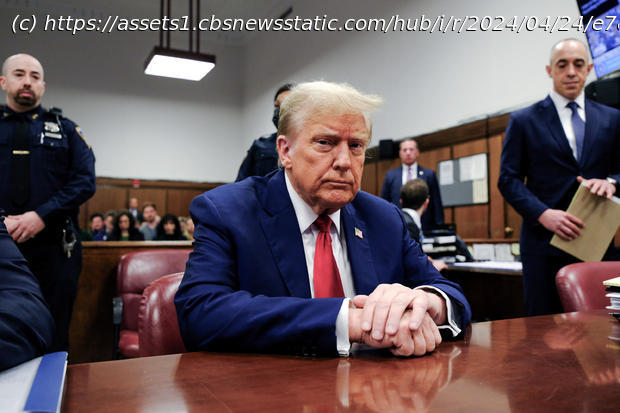The Supreme Court will convene Thursday to consider whether former President Donald Trump is entitled to broad immunity from criminal charges in the 2020 election case.
The Supreme Court will convene Thursday to consider from federal prosecution, jumping into a blockbuster dispute that will be critical to the fate of his 2020 election case in Washington, D.C.
At issue in the case known as Trump v. United States is for allegedly official acts while he was in the White House. The dispute, which arose from the federal prosecution by special counsel Jack Smith, is the second to come before the justices in their current term with significant consequences for Trump’s .
The Supreme Court has never before addressed whether a former president is immune from criminal prosecution, and the outcome of the legal battle will determine whether Smith’s case heads to trial. The court has a 6-3 conservative majority, and Trump appointed three of its members.
If Trump prevails, it would bring his federal prosecution in Washington to an end. But if the Supreme Court sides with the special counsel — who before two lower courts — and the justices reject Trump’s claims of broad immunity, proceedings in the case could resume. It remains unclear, however, how soon after a trial would begin.
A victory for Smith would also further raise the stakes of the 2024 election for Trump, since he could order the Justice Department to drop the criminal charges against him if he retakes the White House.
Arguments are expected to last at least an hour. D. John Sauer, former Missouri solicitor general, is set to argue for Trump, and Michael Dreeben, counselor to the special counsel, will appear on behalf of Smith and his team of prosecutors.
In this court fight, the justices will consider whether the doctrine of presidential immunity extends to criminal prosecution for acts undertaken by a former president while he was in office.
The Supreme Court ruled in 1982 that a president is immune from civil liability for acts taken within the « outer perimeter » of his official duties. But it has never before addressed whether that sweeping immunity protects the nation’s chief executive from criminal charges. Trump is the first former president in the nation’s history to be prosecuted. He has pleaded not guilty to all charges and has claimed the cases against him are politically motivated.
Arguments will be the last of the Supreme Court’s current term, during which the justices have taken up numerous disputes that have directly or . The Supreme Court in March said from the 2024 ballot using a rarely invoked provision of the 14th Amendment, overturning a from Colorado’s highest court that deemed him ineligible for the presidency because of his actions surrounding the Jan. 6, 2021, assault on the U.S. Capitol..
The proceedings will also take place alongside the involving Trump taking place in Manhattan, where he is charged with 34 state felony counts for falsifying business records. The former president pleaded not guilty to those charges, and unsuccessfully attempted to have them tossed out on immunity grounds. The judge overseeing that trial denied a request for Trump to be excused to attend arguments at the Supreme Court.
Home
United States
USA — mix Supreme Court to consider Trump's claim of sweeping immunity in 2020 election...






